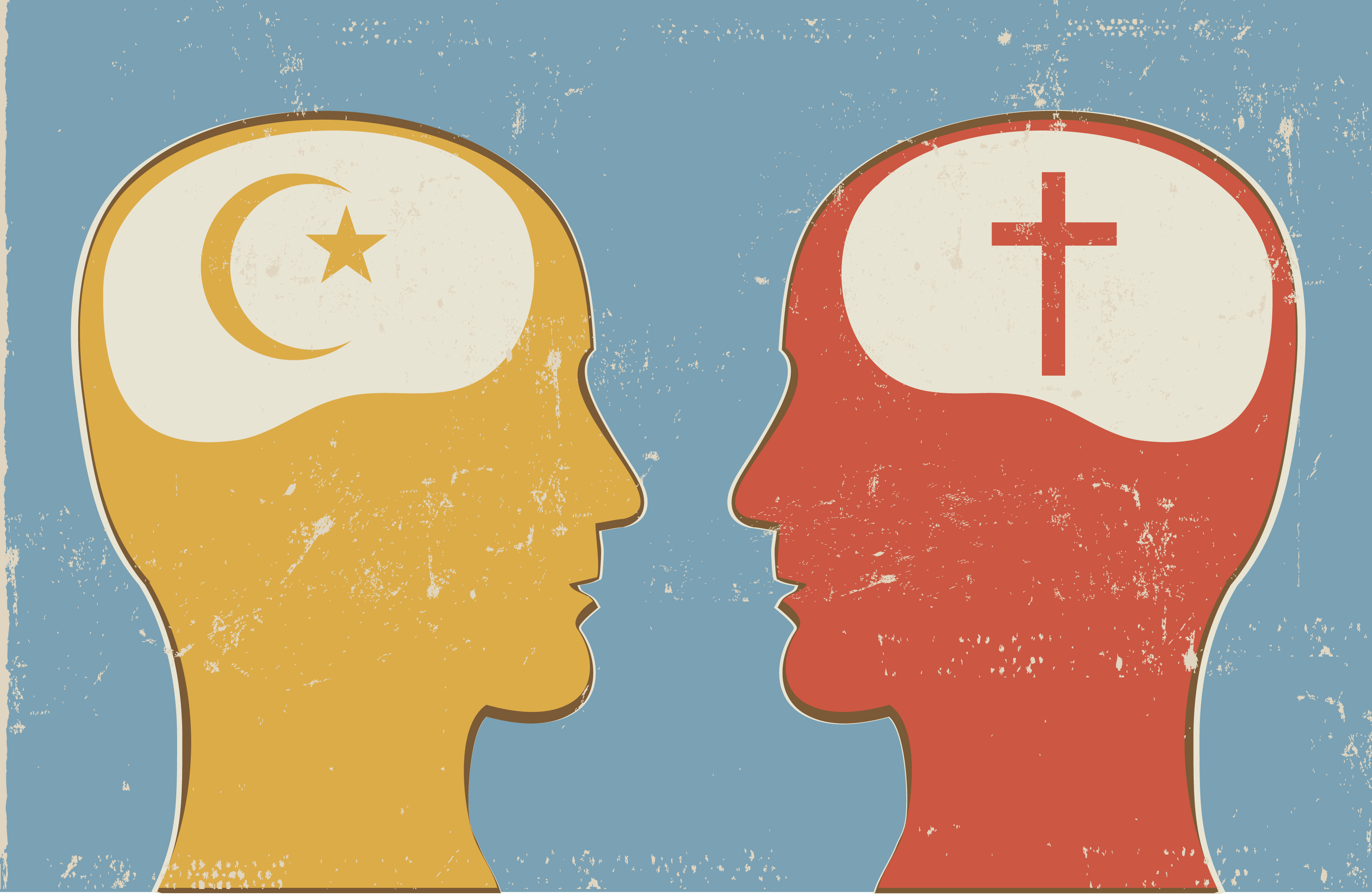By Maria
In this post I’ll attempt to explain through one important aspect, how the nature of God for Islam and for Christianity is quite different, when we consider God’s activity within the world of nature. For both, God is Creator and sustainer of all created things, but let’s look at a little bit of detail. Of course, I can only offer a tiny snippet for discussion, and I would like to point out that none of this is controversial.
Islam
Islam teaches that God must be utterly free from any limitation, necessity or constraint when God acts in the world. The demands of divine freedom are very radical; even a natural cause such as fire must not possess its own effect of burning.
Ordinarily we tightly connect a cause with its effect; for example, a fire causes the effect of burning cotton. But Islam never agrees with that idea and provides its own account termed ‘occasionalism’.
Al-Ghazali explained that the fire and the burning cotton are not cause and effect, but two separate acts and God is the true cause of each. In fact, the fire is merely an ‘occasion’ that God provides in order that he make the cotton burn. Because God is doing all the action the fire is inert, without any active power to burn anything at all.
Even if it came to it, that I should lose my head with a slice of the sword, it is not the executioner who kills me nor the sword, it is God. Aladdin Yacub writes, “Al-Ghazali says that the flowers of the Sunna do not accept the severing of the head as the cause of death: for them, God is the cause, since ‘God is the exclusive originator…and no created thing is the cause of a created thing”.
It seems the world is not what it appears to be when you look at it. It is so different, you may well ask, are you the cause of your own free actions? Sadly, no, God is.
God creates your act and creates in you the human power that relates to this act, but the act is not due to the power created in you, rather it is for the purposes of God’s acting through you. Yacub writes that Al-Ghazali attributes occasionalism like this to the Quranic verse: “God is the creator of everything” (39:62).
Al-Ghazali (11th century) was a monumental thinker in Islam who is still revered today, and who supported wholeheartedly the Asharite idea of occasionalism. Prior to the success of occasionalism, some Islamic philosophers such as Al-Farabi and Ibn Sina (10th – early 11th centuries) worked within the Greek philosophical framework. But Islam’s commitment to occasionalism shut down once and for all any chance that Islam could ever engage again with the Greek ideas.
Christianity
A thirteenth-century scholastic thinker like Thomas Aquinas, who reconciled Aristotle’s natural philosophy with Christian ideas, represents traditional Christian philosophy. This traditional framework is termed ‘secondary causality’. It holds that God freely bestows on each created thing its own natural sphere of freedom according to its species and natural law. God does this freely simply because he wants to.
Because each created thing is free within the scope of its own natural powers, it follows that there is a true relation between cause and effect. Fire does burn cotton through its own natural powers, and in accordance with natural law it cannot not do so.
Now, should someone take to me with a sword, it is not God who kills me, but he who wields the sword. For he is the cause of his own action, the effect of which is the loss of my head. Furthermore, my murderer can be held morally accountable for his own action for he could have chosen to do otherwise.
The upshot is, for Christians, the world is well-ordered, consistent, and intelligible to the human mind.
To conclude, Christianity, unlike Islam, continues to shape its philosophical ideas. Islamic occasionalism and its connected ideas entered the Latin West in the 13th century forming the trajectory of modernity, and its various effects resonate until today. While the scholastic ideas endured within Catholicism, in modern philosophy they lost ground. Edward Feser writes, “The intellectual tradition of the early moderns (14th century on) sought to replace the scholastic notion of causal powers, and the recent theorists are rebelling against the moderns.”
It’s a tangled web, but that is another story.
Finally, the divergence between Islam and Christianity over natural causes demonstrates in a concrete way that God acts differently in each religion. This undergirds the claim that the God in Islam is not the same God as in Christianity.

